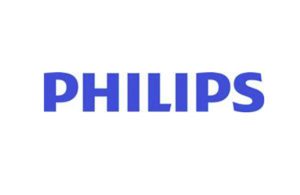 Royal Philips (NYSE:PHG) announced a strategic partnership and a clinical trial milestone for its expanded stroke treatment capabilities.
Royal Philips (NYSE:PHG) announced a strategic partnership and a clinical trial milestone for its expanded stroke treatment capabilities.
Amsterdam-based Philips yesterday confirmed a strategic partnership with medtech stroke care company Nico.Lab that will use Philips’ Azurion image-guided therapy system to advance stroke treatment. Additionally, the company announced the enrollment of the first patient in a global stroke study.
In the collaboration, Nico.Lab offers its StrokeViewer cloud-based, end-to-end artificial intelligence-based stroke triage and management solution that seeks to improve patient outcomes by optimizing the stroke workflow.
The platform analyzes CT scan data with AI and automatically detects large vessel occlusion (LVO) and its location before sharing the analysis with physicians at primary stroke centers and intervention centers where the patient eventually receives treatment.
Philips said in a news release that its recent innovations optimize the imaging capabilities of its image-guided therapy angiography suite with the new SmartCT 3D visualization and measurement tool that aims to get patients into treatment quickly.
“By expanding our offerings in stroke care we are able to provide an integrated portfolio of intelligent solutions across the full stroke care pathway, giving clinicians the right information during every critical step,” Philips image-guided therapy chief business leader Bert van Meurs said in the release. “With our integrated portfolio, and by using validated AI and cloud technologies, we can facilitate collaborative care to optimize the stroke care pathway from diagnosis to treatment.”
In addition to the collaboration, Philips announced the enrollment of the first patient in the We-Trust stroke study at Vall d’Hebron University Hospital in Barcelona, Spain.
The multi-center, randomized, controlled trial will assess if Philips’ Direct to Angio Suite workflow can improve outcomes for early time-window stroke patients (less than six hours after stroke onset).
Philips’ Direct to Angio Suite can potentially reduce the time to treatment for early time-window stroke patients through the combination of stroke diagnosis and subsequent treatment in the same angio suite, the company said. The study will compare the approach to the conventional workflow of diagnosis for treatment in the CT or MRI suite, followed by treatment in a separate angio suite.
The company expects the trial to take place across 15 leading stroke sites with more than 560 patients in the U.S., Brazil, Argentina, the Netherlands, France, Germany, Spain and Turkey. Philips expects the trial to complete in 2023.
“We are very excited to initiate this multicenter study, partnering with leading stroke centers and physicians to innovate the diagnosis and treatment of stroke patients,” Philips CMO for image-guided therapy Dr. Atul Gupta said. “The We-Trust study is a key milestone, building on Philips’ leading position in image-guided therapy and our strong global network of clinical partnerships. It adds to our deep commitment to further optimize stroke workflow, remove the hurdles to fast, decisive treatment, and improve stroke outcomes.”